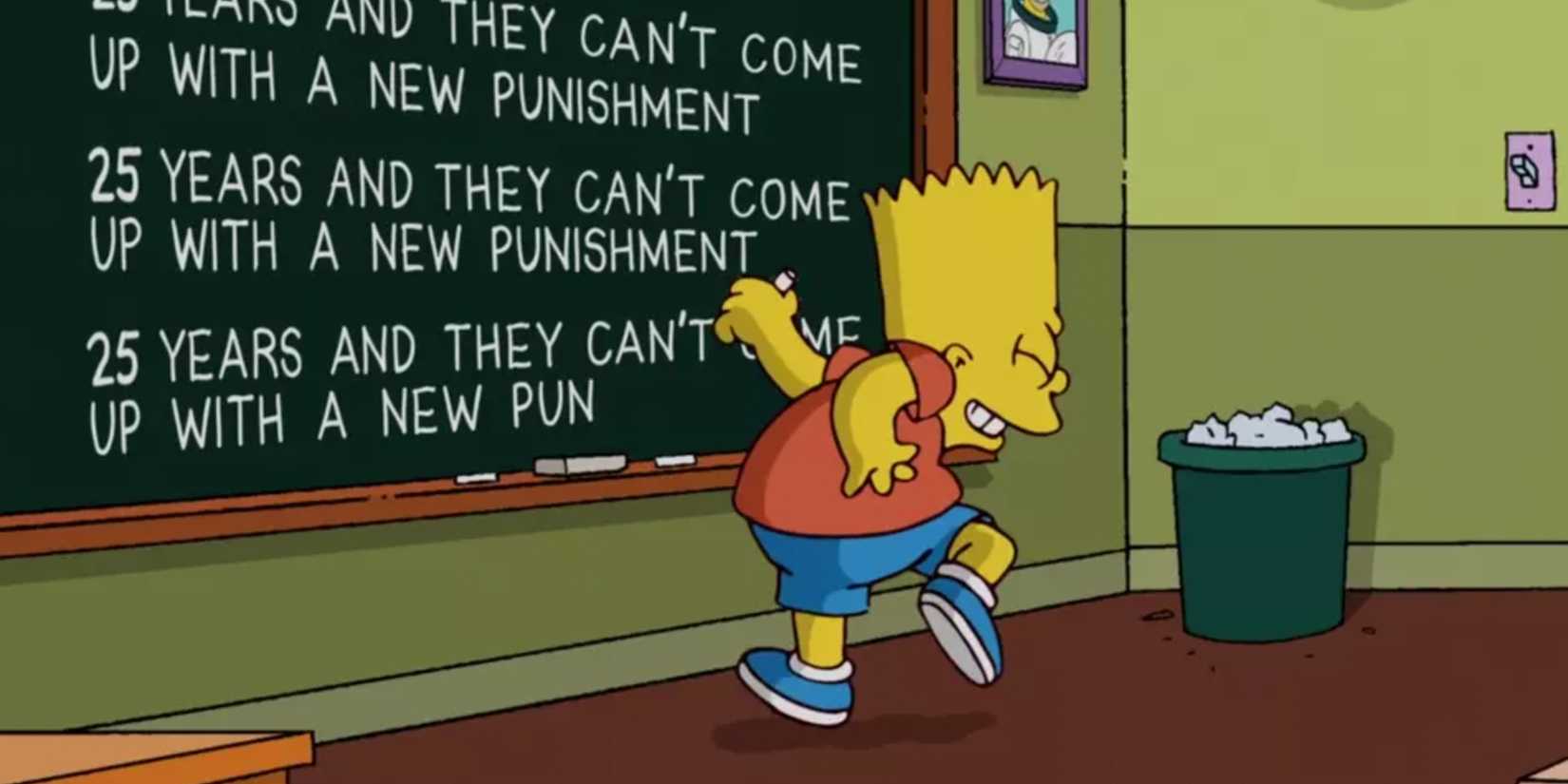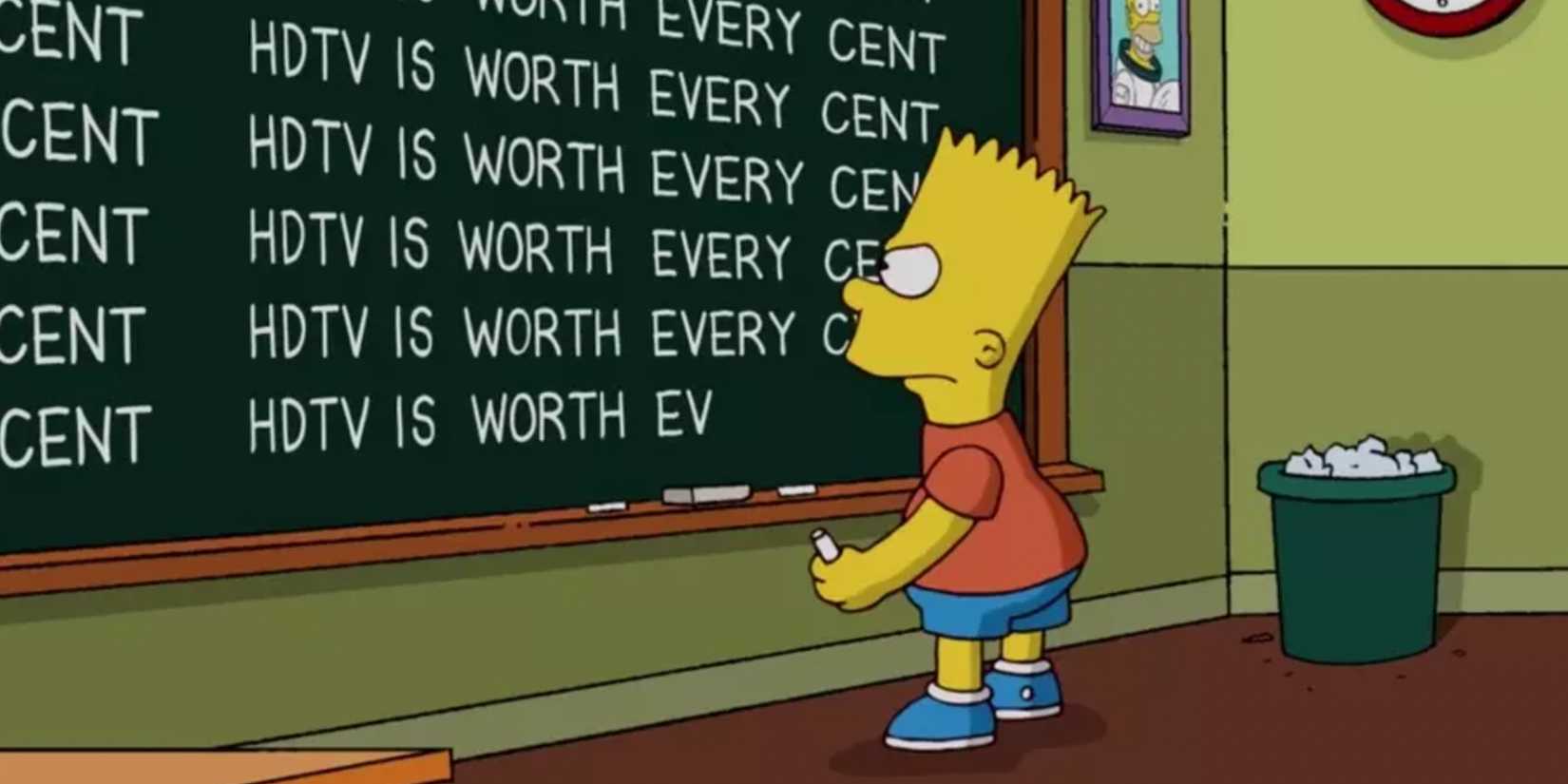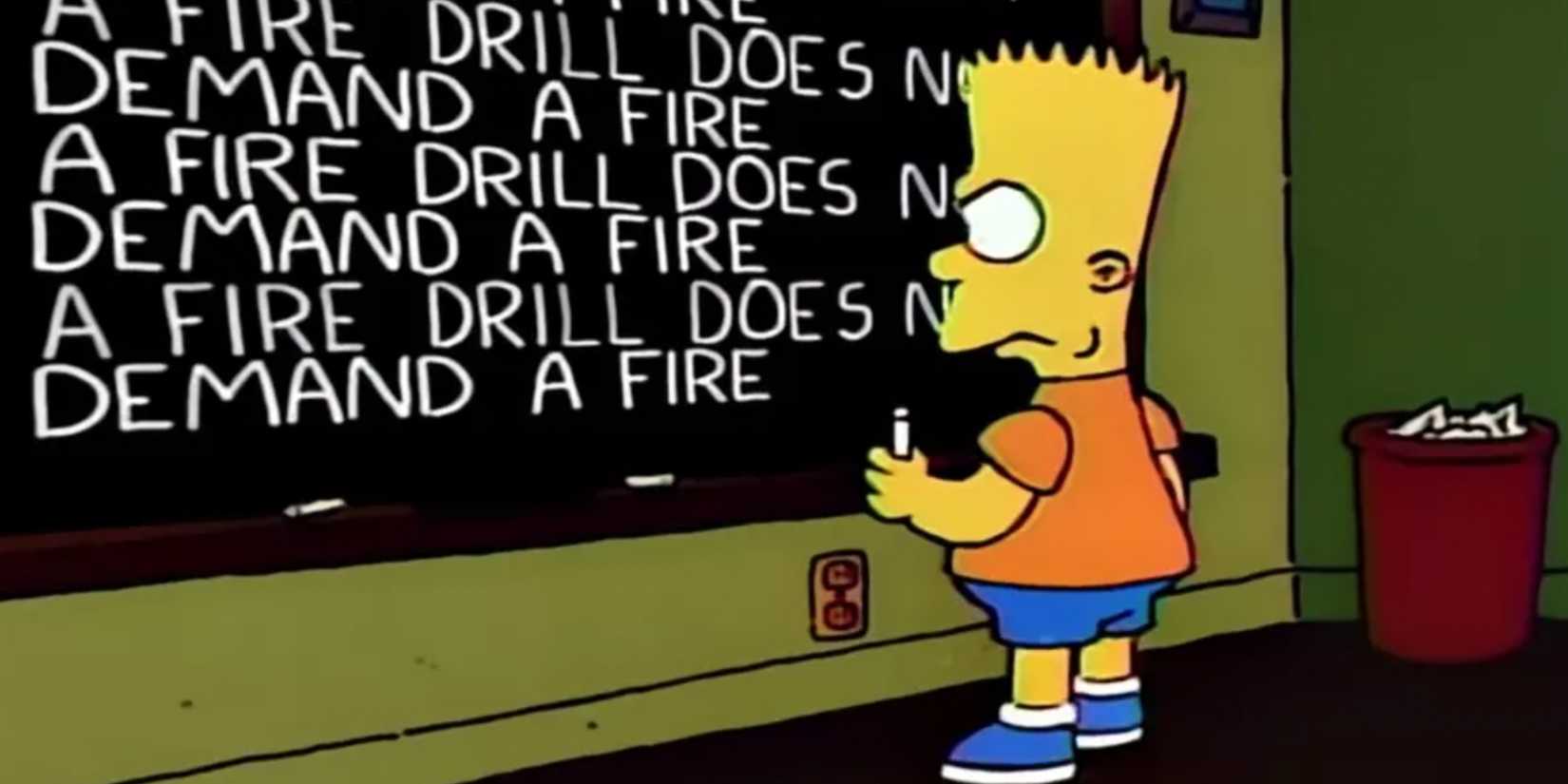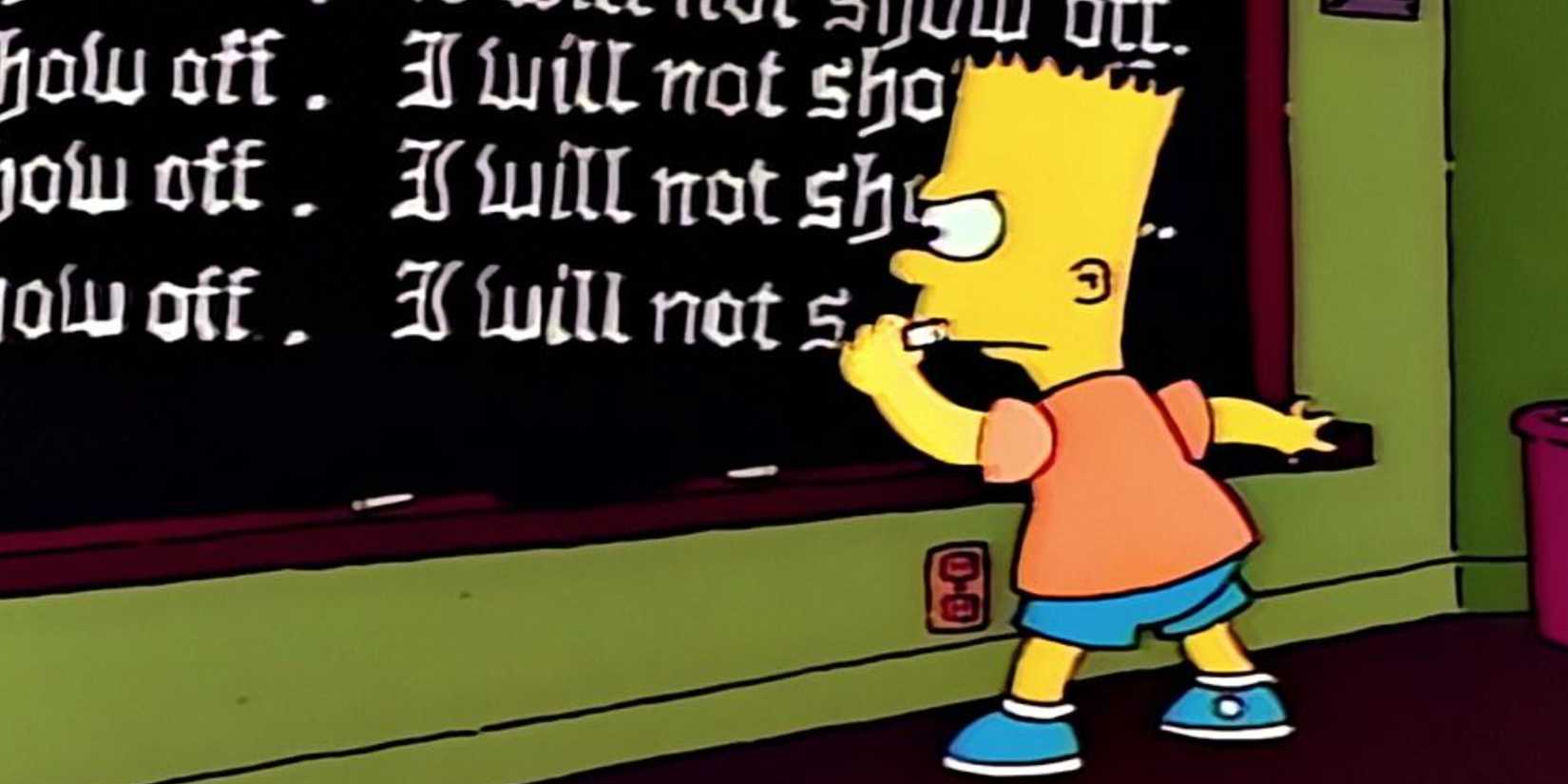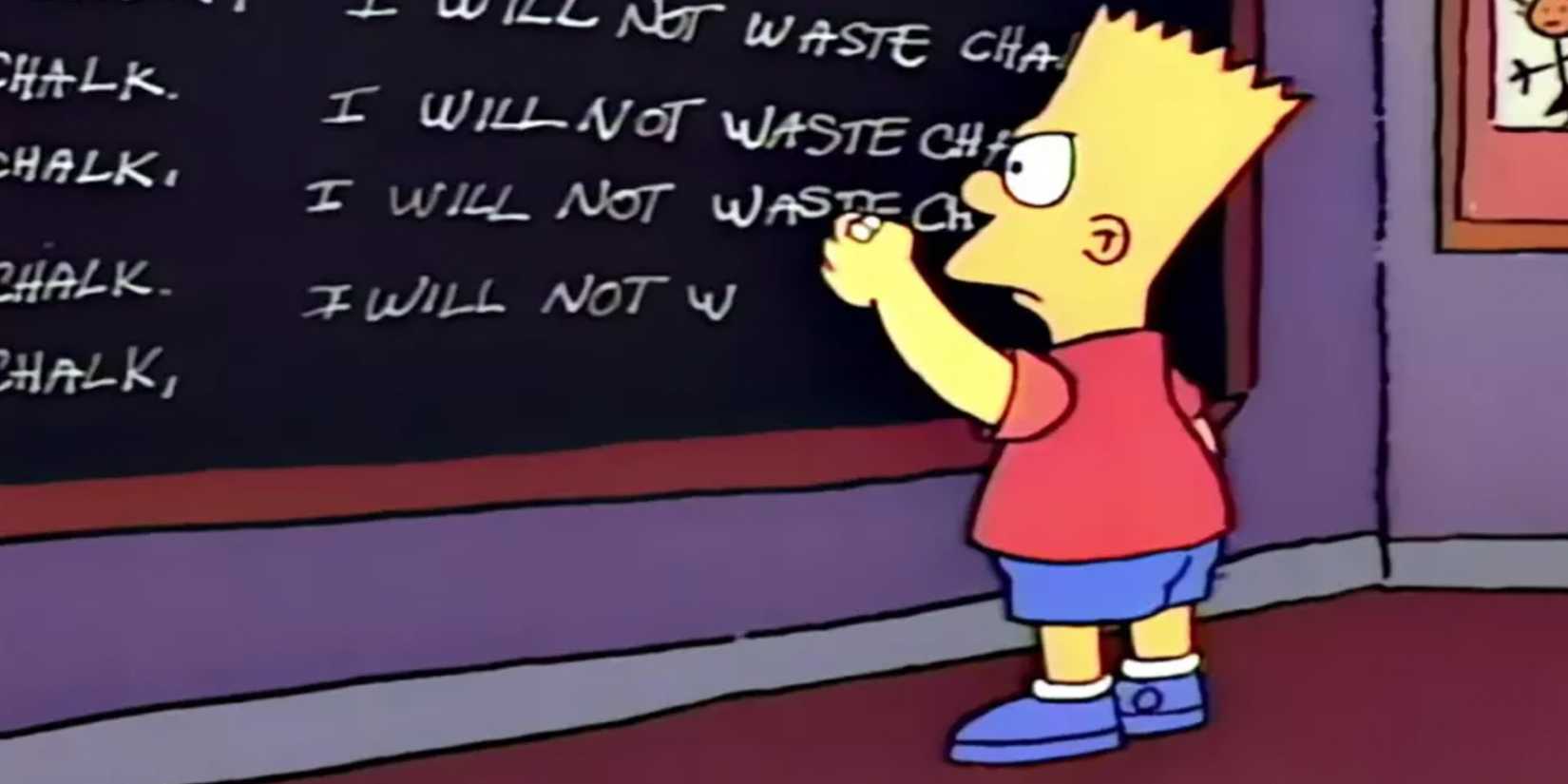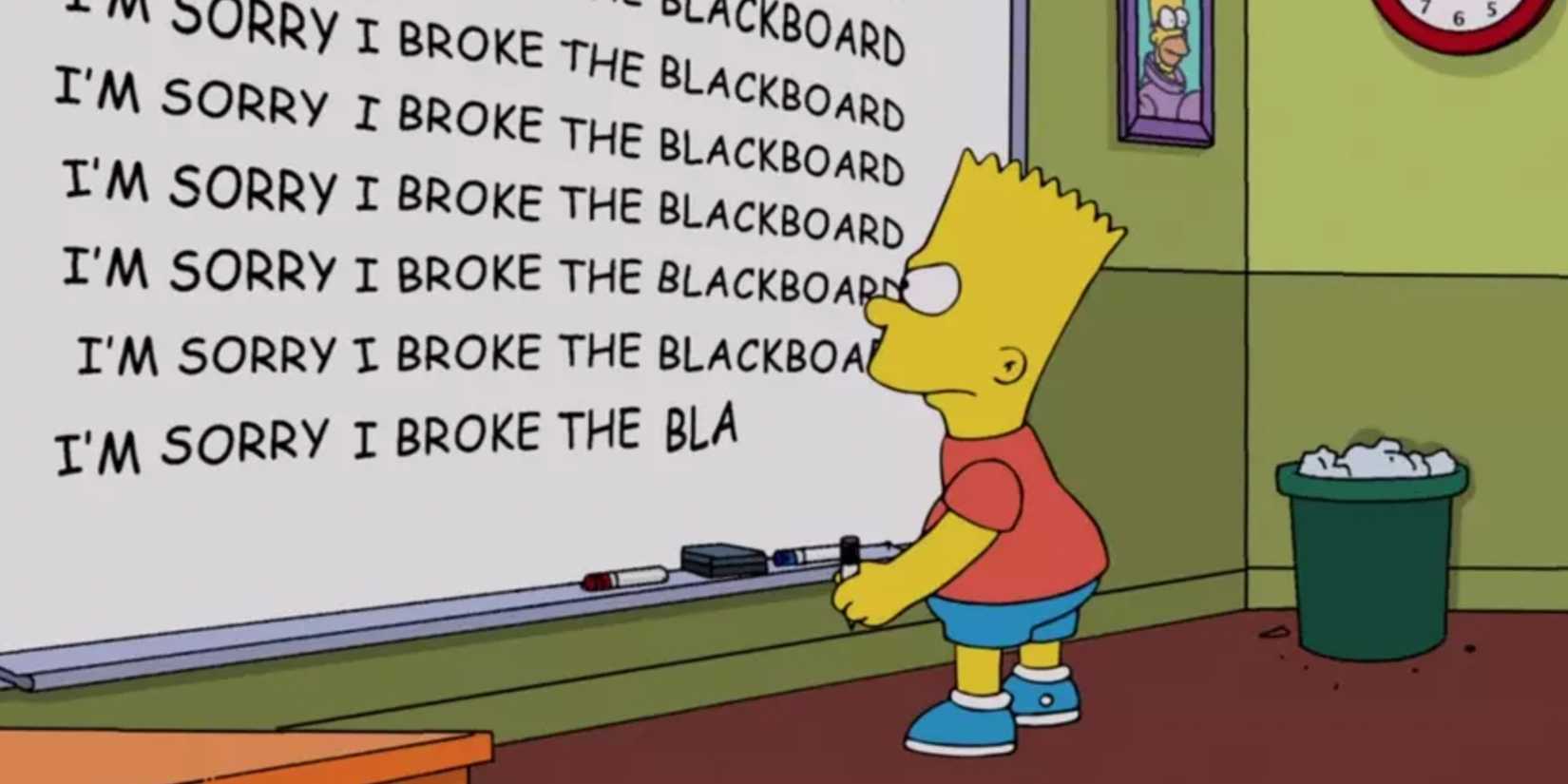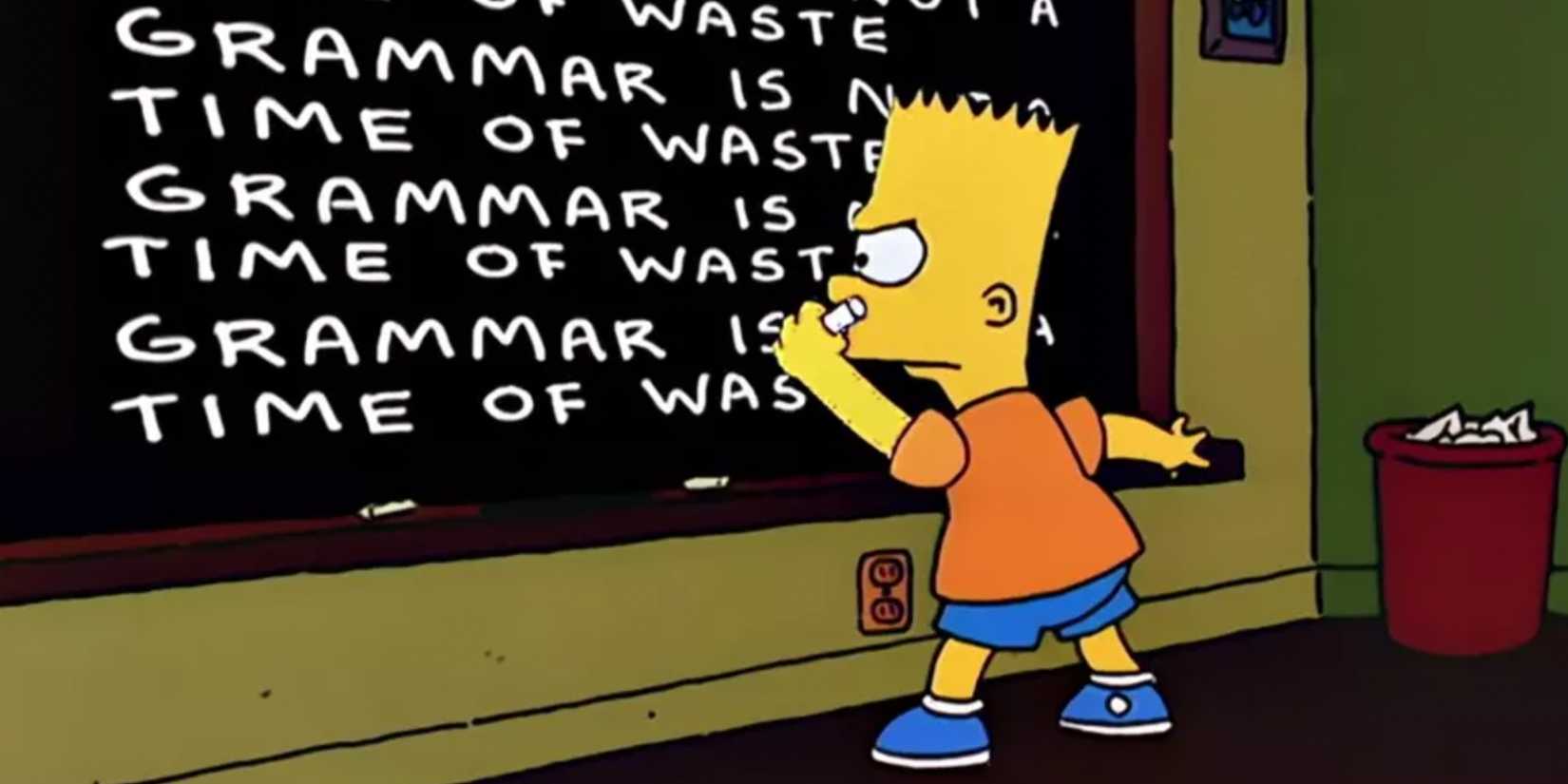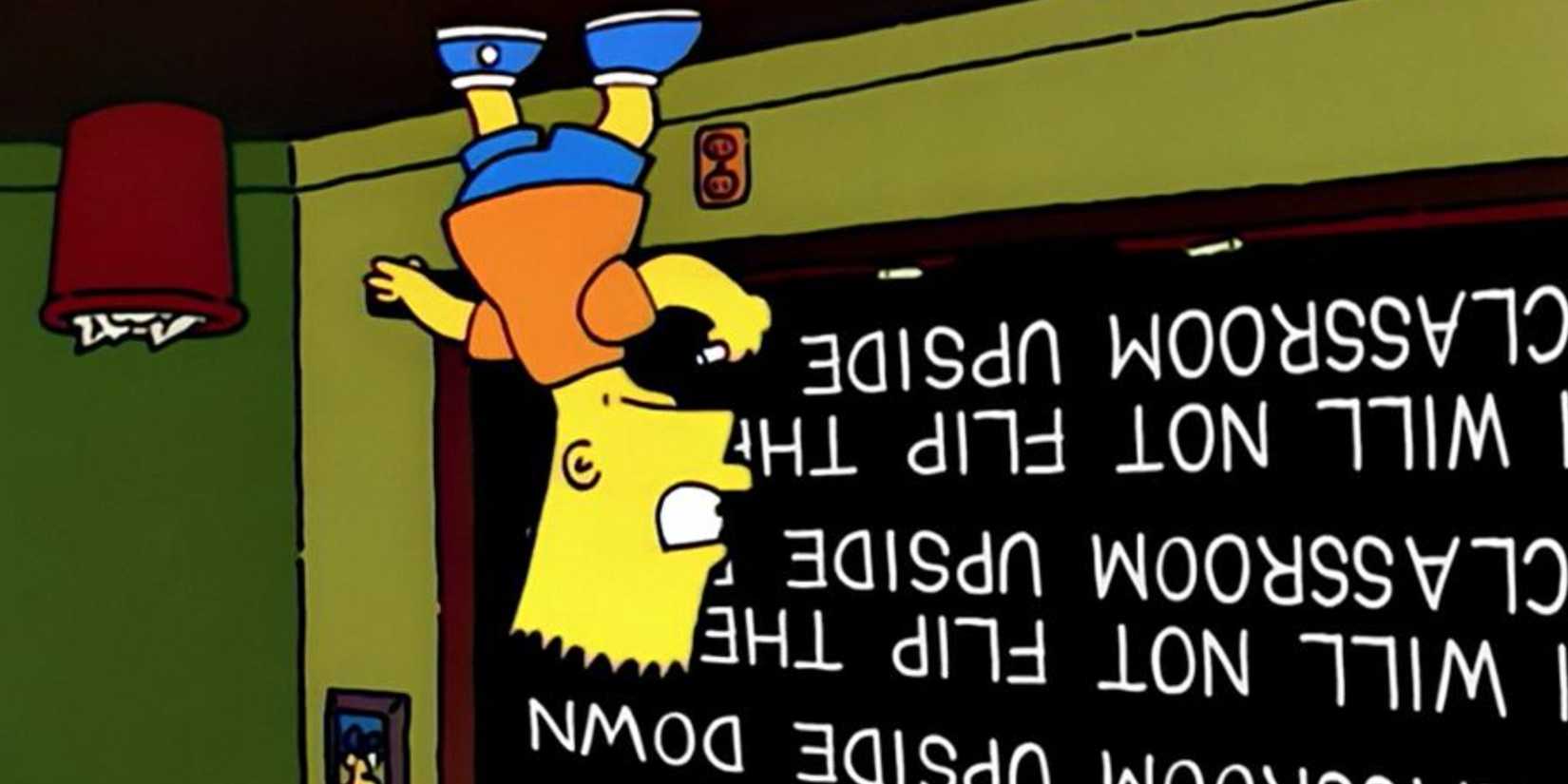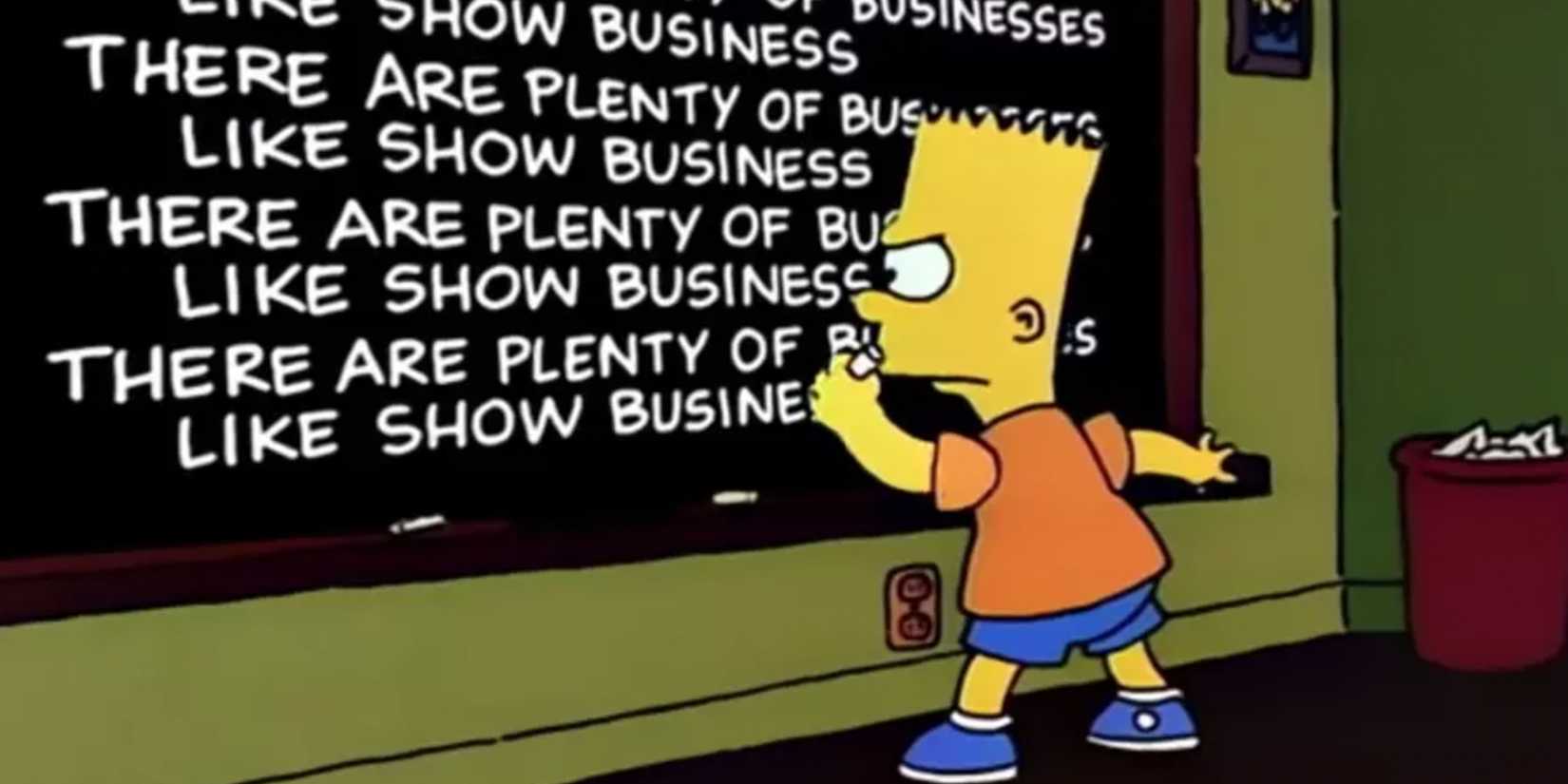Bart’s 10 Best Chalkboard Gags on ‘The Simpsons,’ Ranked

The Simpsons has been such a staple of popular culture that many of its recurring gags have become ingrained in popular culture. It’s easy to forget that when the show first premiered, Bart’s chalkboard gags at the beginning of each episode were different than any other sitcom. Each episode has a unique joke that contributes to Bart’s development as a character, and manages to make the show feel fresh by including relevant references to recent events. As is the case with many aspects of the intro to The Simpsons, it became even more prominent as the show got further into its future.
Bart’s chalkboard jokes have remained an important part of The Simpsons, even if some have argued that the show itself has declined in quality. Even during darker moments, these intros have provided some levity. Here are Bart’s ten best chalkboard gags on The Simpsons, ranked.
10
“When I slept in class, it was not to help Leo DiCaprio.”
“Flaming Moe” (Season 22, Episode 1)
The Simpsons often is able to sneak in references to recent works of popular culture, as the show’s quick production turnaround time allows it to craft parodies when they are still relevant to a mass audience. Although the show would eventually go forward with a full parody of Inception in order to explain the relationship between Homer and his mother, the episode “Flaming Moe” explained how Bart sleeping in class was excused by the notion that he was helping Cobb, the character played by Leonardo DiCaprio in Christopher Nolan’s Oscar-nominated science fiction blockbuster.
Inception became one of the few original films that completely dominated the culture and was celebrated by critics and audiences alike, so it only made sense for The Simpsons to make a joke at its expense. Unfortunately, DiCaprio himself has yet to have a vocal cameo on The Simpsons.
9
“25 years and they can’t come up with a new punishment.”
“Homerland” (Season 25, Episode 1)
The Simpsons is often willing to make fun of its own longevity, as it still surprises audiences that the show has been on the air for as long as it has, and has shown no signs of slowing down. Even though debates on whether The Simpsons should ever be concluded have grown even more prominent in the years since the episode “Homerland” aired at the beginning of Season 25, the chalkboard gag referencing Bart’s punishment is still very relevant.
The reference to Bart’s punishment is particularly ironic in “Homerland,” which is one of the show’s most underrated episodes of the past decade. In an elaborate parody of the Emmy-winning crime series Homeland, The Simpsons changed up its structure to become an exciting espionage series, in which Lisa occupied the same role as a criminal investigator that Claire Danes had on the show.
8
“HDTV is worth every cent.”
“Take My Life, Please” (Season 20, Episode 10)
Debates about HDTV were at the apex of The Simpsons in its twentieth season, which marked the first time in the show’s history that it switched over to the new format. While some longtime fans enjoyed the fact that she was willing to adapt in order to fit a new medium, there was a rugged, janky style to the classical animation that had become lost with its new polish.
The Simpsons has always had a healthy perspective on its own legacy, as the show was such a dominant force of popular culture that it has become as much of an industry as it was a creative outlet. By lampooning the rising prices caused by using the crisper animation, The Simpsons acknowledged that FOX was willing to go to any lengths in order to get fans to pay more money for the show that they’d become obsessed with.
7
“A fire drill does not demand a fire.”
“The Caine Mutiny” (Season 8, Episode 20)
It’s easy to forget how popular Bart was as a character, as “Bartmania” became one of the most prominent ramifications of the show during its “Golden Age” in the 1990s. Bart was a snarky, destructive character who was always forgivable because of his great sense of humor, which gave the writers of The Simpsons the opportunity to put him in increasingly eccentric situations.
The episode “The Caine Mutiny” hints at just how uproarious Bart could be, as it implies that he may have started an actual fire in order to make the fire drill at Springfield Elementary School feel more realistic. Although more recent seasons of The Simpsons have taken great lengths to show how Bart may have grown up and evolved, there was certainly something exciting about the show’s first ten seasons, in which he felt completely unpredictable and anarchic.
6
“I will not show off.”
“Three Men and a Comic Book” (Season 2, Episode 21)
Alterations to the intro itself are rare, as changing up such an established part of the show could rob it of the consistency that has given the long-running animated show such longevity. On a practical level, it’s also a challenge for The Simpsons to change part of the chalkboard gag because of the labor of animation, as it is one of the rare shows that consistently puts out a new full season of episodes on a yearly basis without any significant gaps.
“Three Men and a Comic Book” included a clever twist in which Bart was writing in cursive to say “I will not show off,” hinting at the sarcastic attitude that makes him such a fun character. It’s impressive that The Simpsons already had enough faith in its audience to recognize that it was altering part of the formula, even though the series was only in its second season at the time.
5
“I will not waste chalk.”
“Bart the Genius” (Season 1, Episode 2)
The Simpsons is one of the rare shows that started strong from the very beginning, even though there are many iconic programs that struggled to get through their first seasons. Even if beloved comedy shows like The Office, Parks and Recreation, and Schitt’s Creek had first seasons that are nearly unwatchable when compared to what they were followed by, The Simpsons had many rewatchable episodes in its first season, including the second installment, “Bart the Genius.”
There was a lot of pressure on “Bart the Genius” to be a standout episode, as it was the direct follow-up to the premiere special “Simpsons Roasting On An Open Fire,” which is still remembered as one of the greatest in the entire history of The Simpsons. However, the joke about Bart wasting chalk when being punished indicated that “Bart the Genius” was destined to be another classic.
4
“I’m sorry I broke the blackboard.”
“Black-Eyed, Please” (Season 24, Episode 15)
The Simpsons is often considered to be a timeless TV show, as it has retained aspects of the status quo ever since it first began airing. Although this has occasionally led to situations in which the timeline no longer makes sense, it has also given The Simpsons the chance to make fun of new developments in technology that have emerged since the show first began airing.
The episode “Black-Eyed, Please” featured Bart’s chalkboard being replaced with a whiteboard, implying that he may have broken the original. Although it’s a funny moment that serves as a reminder that Bart may have inadvertently done even more damage than what is shown on screen, it also served as a means of reaching out to younger viewers, who may not have even known what a chalkboard was, as they’ve steadily been replaced by whiteboards over time.
3
“Grammar is not a time of waste.”
“Marge Simpson in: ‘Screaming Yellow Honkers'” (Season 10, Episode 15)
The best jokes on The Simpsons are both funny on a very basic level and more satirical in nature if the viewer thinks about what they mean. By making fun of Bart’s inability to string together coherent sentences, the episode “Marge Simpson in: ‘Screaming Yellow Honkers’” flipped the script on the intro and took another jab at how useless the notion of copying down chalkboard sentences actually was for a child’s education.
The joke that “grammar is not a time of waste” is reflective of how poorly Springfield Elementary School has served Bart, as he is clearly an intelligent child who is still given poor grades. While this may be because Bart can be lazy and does not want to spend time on school projects, it also indicates that the educational system has not done its best to complement his learning habits.
2
“I will not flip the classroom upside down.”
“Million Dollar Abie” (Season 17, Episode 16)
There’s nothing better than a good sight gag on The Simpsons, as the show’s ability to layer the background with jokes is part of the reason it became so influential. By using the full freedom of an animated medium, The Simpsons crafted episodes that were so dense with gags that they became instantly watchable. However, audiences were always going to pay attention to the chalkboard gag at the beginning, which gave The Simpsons the opportunity to indicate how far the animation had evolved.
The seventeenth season of The Simpsons offered it a minor comeback, providing a solid string of episodes after many fans had felt that the show had gone through a period of mediocrity after its tenth season. However, “Million Dollar Abie” was a very solid episode that showed that The Simpsons was still capable of churning out new classics, and hinted that there was a way to continue well into the future.
1
“There are plenty of businesses like show business.”
“The Boy Who Knew Too Much” (Season 5, Episode 20)
“There are plenty of businesses like show business” is simply a great reference to the title track of the 1954 musical There’s No Business Like Showbusiness, which is more iconic than the show itself. Even for those who had never seen or even heard of the film, the phrase “there’s no business like show business” was so recognizable that The Simpsons was able to take advantage of the viewers’ awareness.
The Simpsons writers’ room is filled with many well-read and knowledgeable creatives, who often pull from the entire history of media and popular culture in order to come up with the best jokes. There’s a benefit to having a show that is so in conversation with the history of the arts, as for many viewers, The Simpsons was able to introduce them to aspects of the Golden Age of Hollywood that they never would have been aware of otherwise.
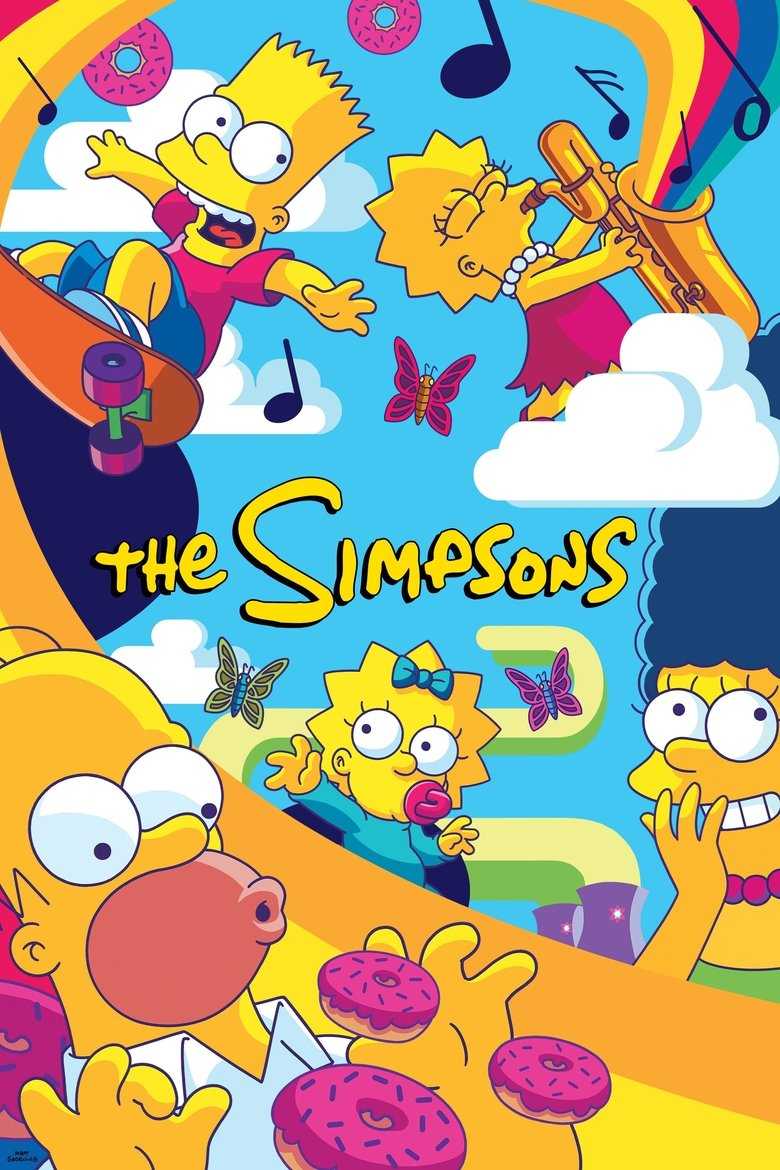
The Simpsons
- Release Date
-
December 17, 1989
- Network
-
FOX
-

Homer Simpson / Abe Simpson / Barney Gumble / Krusty (voice)
-

Julie Kavner
Marge Simpson / Patty Bouvier / Selma Bouvier (voice)
